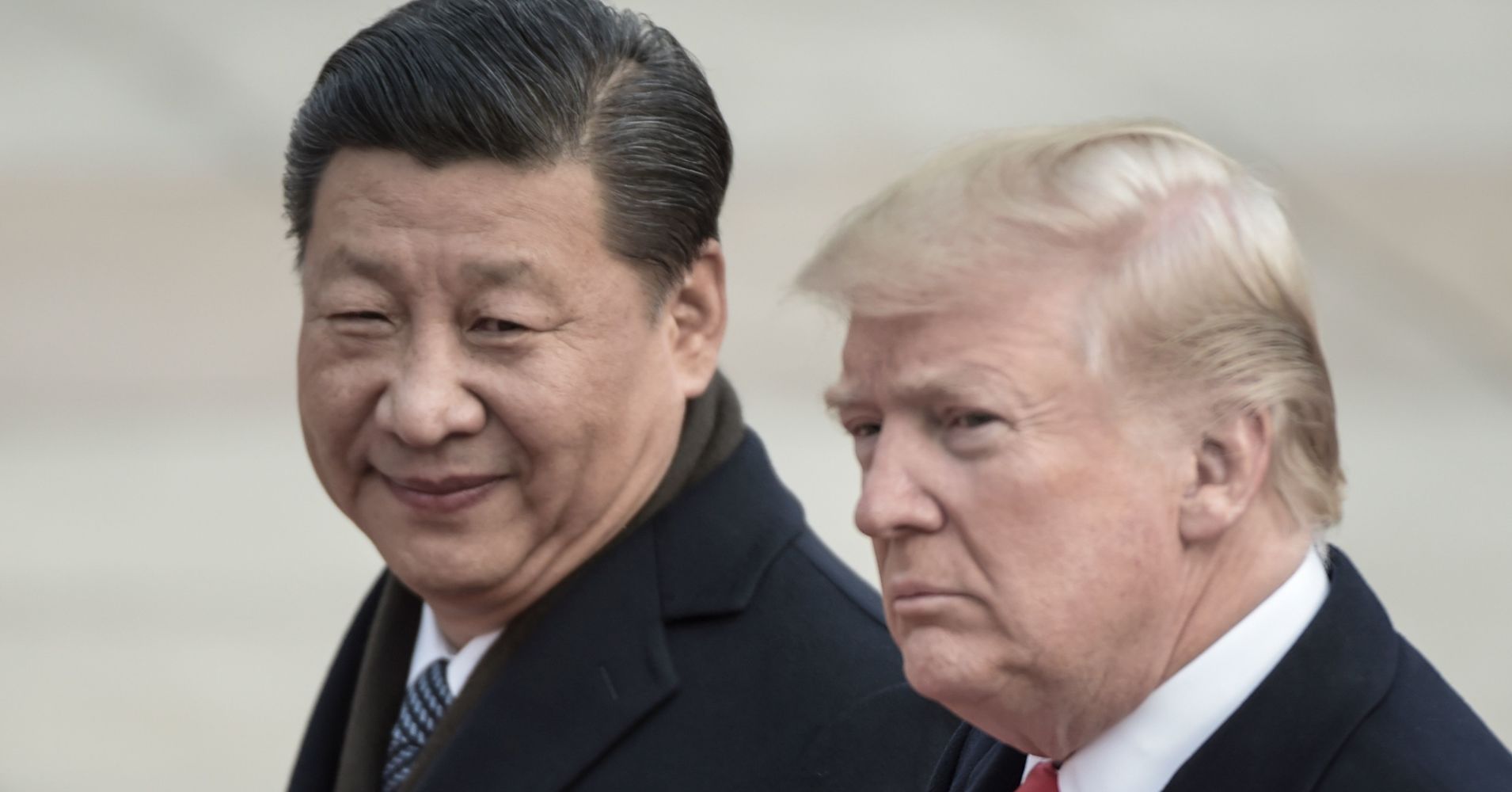
CNBC reports: "The U.S. relationship with China is 'probably as poor as' it was before the Nixon administration opened up ties more than four decades ago, former Fed governor Kevin Warsh told CNBC on Thursday. 'We're at the risk of a real cold war' between the world's two biggest economic superpowers, said Warsh, who had been on President Donald Trump's short list for Fed chairman before Jerome Powell was chosen. 'The last 30 years we've been living and breathing globalization as if it's an inevitable force.' Warsh was using the term 'cold war' to mean an economic standoff, not the decades-long "mutually assured destruction" nuclear stalemate between the U.S. and Russia that began to thaw in the detente period that led to the fall of the Berlin Wall in 1989. 'We are probably on the precipice of a brand new relationship with the Chinese,' Warsh said in a 'Squawk Box' interview. 'Could we be at the beginning of a 10- or 20-year cold war? That has huge implications for the economy.'"
Bloomberg reports: "In 2015, Amazon.com Inc. began quietly evaluating a startup called Elemental Technologies, a potential acquisition to help with a major expansion of its streaming video service, known today as Amazon Prime Video. Based in Portland, Ore., Elemental made software for compressing massive video files and formatting them for different devices. Its technology had helped stream the Olympic Games online, communicate with the International Space Station, and funnel drone footage to the Central Intelligence Agency. Elemental's national security contracts weren't the main reason for the proposed acquisition, but they fit nicely with Amazon's government businesses, such as the highly secure cloud that Amazon Web Services (AWS) was building for the CIA. To help with due diligence, AWS, which was overseeing the prospective acquisition, hired a third-party company to scrutinize Elemental's security, according to one person familiar with the process."
The New York Times reports: "The mysterious Chinese oil company known as CEFC China raised eyebrows wherever it went. Its executives hinted at deep connections within Beijing's halls of power as well as with China's powerful military. Then, last year, prosecutors in the United States arrested one of its top executives, accusing him of bribery in an effort to secure oil rights in Chad and Uganda. Now, they say, he also explored businesses beyond oil: brokering arms deals in other countries and looking for ways to dodge American sanctions on Iran. In a filing on Tuesday in a federal court in New York, prosecutors said that the executive, a former Hong Kong city official and ophthalmologist named Patrick Ho, had discussed using the company's connections to help sell weapons to Chad, Qatar and Libya. The prosecutors also accused Mr. Ho of exploring whether CEFC could serve as a middleman for an Iranian company to gain access to funds from a Chinese bank under international sanctions."
- 2018-10-03 The U.S. and China are playing a dangerous game. What comes next?
- 2018-10-02 Trump's trade victories mean the White House can now 'focus all its ire on China'
- 2018-10-01 Mattis Trip to China Canceled
- 2018-09-28 China, Russia take their turn at the UN
- 2018-09-27 China Rejects Trump’s Charges of Meddling in U.S. Elections
- 2018-09-26 China cancels US warship visit to Hong Kong amid military sanction backlash
- 2018-09-25 China says the U.S. is ‘holding a knife to our neck’ in trade war
- 2018-09-24 Trump’s Tariffs May Hurt, but Quitting China Is Hard to Do
- 2018-09-21 China 'outraged' by US sanctions over Russian weapons buy
- 2018-09-20 Trump Has Put the U.S. and China on the Cusp of a New Cold War
- CNBC US and China are at risk of a '10- or 20-year' economic cold war, former Fed governor Warsh says
- Bloomberg The Big Hack: How China Used a Tiny Chip to Infiltrate U.S. Companies
- The New York Times Chinese Oil Company Official Talked Arms Deals and Evading Iran Sanctions, U.S. Says
- CNN How the trade war could make China even stronger
- The Washington Post China inserted surveillance microchip in servers used by Amazon and Apple, report says
- The Economist China has designs on Europe. Here is how Europe should respond
- NPR Chinese Leaders Leverage Media To Shape How The World Perceives China
- CNBC China respects others' trade secrets — unless it wants something, experts say
- The Economist Dealing with China, America goes for Confucian honesty
- The Atlantic Donald Trump's Real Endgame With China
- CNBC JP Morgan downgrades China stocks, predicts 'full-blown trade war' with US
- CBS News Pence says China is engaged in "unprecedented effort" to influence Americans
- The Economist China grapples with trademark infringement—of its own brands
- The New York Times A Trade War America Can't Afford to Lose
- Foreign Policy China Is Treating Muslims Like Drug Addicts
- The National Interest China's Deadly Drones Are Increasingly Doing Battle Across The Middle East
- The Diplomat Pence on Political Interference: 'China Wants a Different American President'
- The National Interest Mike Pence's Tough Talk on China: The Trump Administration's 'Evil Empire' Moment?
